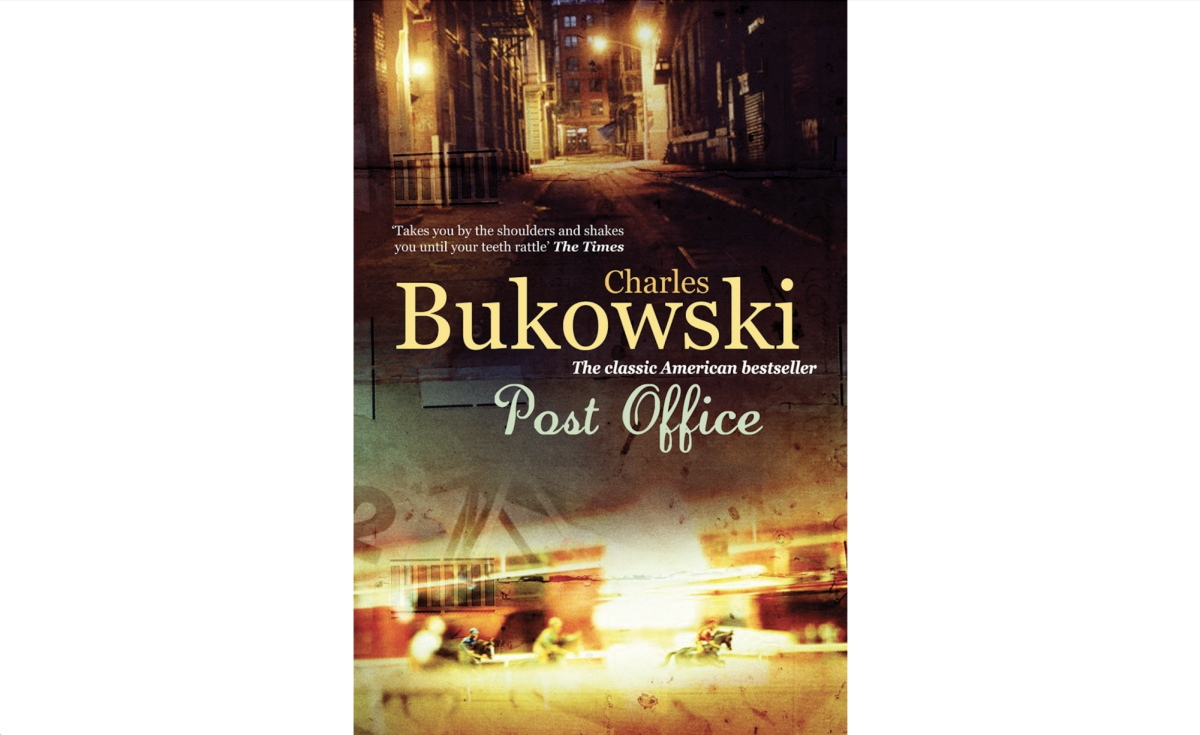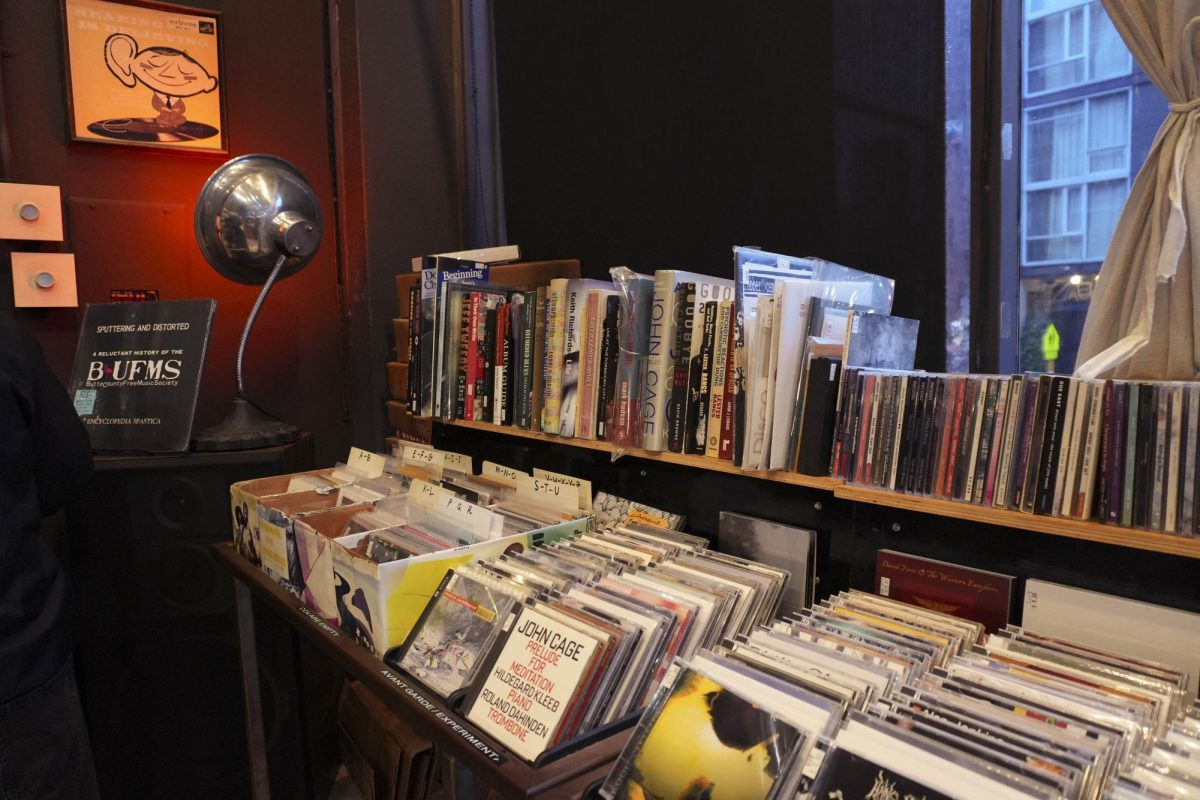American Poet and Author Charles Bukowski, in an interview in 1981, said “I get many letters in the mail about my writing, and they say: ‘Bukowski, you are so fucked up and you still survive. I decided not to kill myself.’ . . . So in a way I save people. . . Not that I want to save them: I have no desire to save anybody . . . So these are my readers, you see? They buy my books—the defeated, the demented and the damned—and I am proud of it.”
Bukowski has books of poetry titled “Love Is A Dog From Hell,” and “Poems Written Before Jumping Out of an 8 Story Window.”
Post Office, the first novel in a trilogy blurring autobiography and fiction, is entertaining and raw in its unapologetic nastiness, and hateful straightforward pessimism. It truly is a story of the defeated, demented, and damned. The book follows Hank Chinaski, a miserable and hateful alcoholic, through his unfortunately long career in the US postal service. “It began as a mistake,” reads the first line of the book, which really sets the tone for Chinaski’s post office life.
Bukowski takes us through a variety of everyday crises faced by Chinaski, who alternates between extremely drunk and extremely hungover, blowing his money on horse race betting and more booze, struggling his way through soul-demolishing days of work. He faces the impossible work speed expected by a boss he’s engaged in an office cold war with, who punishes him with brutal mail delivery route assignments as well as every little bureaucratic torture he can come up with. This boss, Jonstone, who has been with the post office for 30 years, is titled “The Stone,” by Chinaski. Chinaski is clever enough to play the system back in his favor, while The Stone plays it against him as a cruel authoritarian. Their petty power struggles are hilarious and tragically relatable to anyone who has been at the mercy of a similar authority figure.
We also see the extreme dysfunction and eventual failure of more than a few of Chinaski’s marriages, along with several affairs. Chinaski is bitter and self-serving to his core. He does what he wants, with no regard for his marriage, for the wellbeing of others, for really anything in his way. He seems almost completely amoral, devoid of love, guilt, or genuinely felt empathy. He’s not some Bateman-esque psychopath, instead coming across more as a man so beat down by the state of his own life he has simply given up caring. Despite this, he’s a compelling narrator in his intelligence, in his constant comical and brutal judgment of everything around him, and in his battles within and against a system you start to hate more than you hate him. It’s fun to be brought through the awful struggle of his life.
I found myself at times rooting for him as he rides out the twists, turns, and daily battles of existence, even though he really doesn’t deserve any form of success.
As a reader and a writer, I generally enjoy complex and flowery prose, with way too many “time to check the dictionary” words and incredibly long sentences (think Nabokov, Pynchon, or McCarthy). Bukowski is dead opposite, incredibly concise and blunt, but he pulls it off perfectly. Central to the work’s appeal is its provocative vulgarity, its uncomfortable, unflinching honesty, and the matter-of-fact yet still carefully constructed prose serves this well. Bukowski is just going to say it, whatever disgusting thought or action of Chinaski’s, he’s going to put it right in front of you.
Many readers will probably reach a point in this book, whether it’s Chinaski’s lowest moment, raping a stranger on a mail delivery route, or somewhere before then, where they just don’t want to hear from this awful, violent, misogynistic piece of shit guy anymore. It’s all made more uncomfortable in the fact that Chinaski transparently represents Bukowski, who was very open about his alcoholism, his womanizing, and his extremely troubled personal life. Obviously it is not fair to assume that Bukowski has done every awful thing Chinaski has. Chinaski feels like a character created by Bukowski to manifest and exaggerate all of his darkest attributes into one fully irredeemable man. The back of the copy I have describes Chinaski as Bukowski’s “literary alter ego.”
I think the type of humility, or maybe simple lack of care for image, it takes to present oneself so unflatteringly as an author is commendable, and has led to a lot of great art like this book. I can’t blame people who just can’t deal with a protagonist like Chinaski, or find the book reprehensible in its content, but to me, this is where Bukowski stands out as an author, a poet, an artist. It’s in his willingness to chronicle the experiences of people like Chinaski, because whether or not we’d like to think about it, they’re out there, people who live awful lives and do awful things, struggling to survive in miserable worlds of their own creation.















Doug
Oct 17, 2024 at 5:45 pm
Bukowski and Raymond Carver are my favorite writers